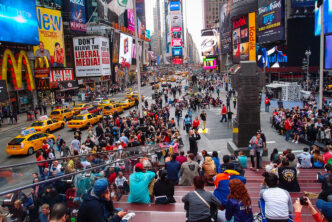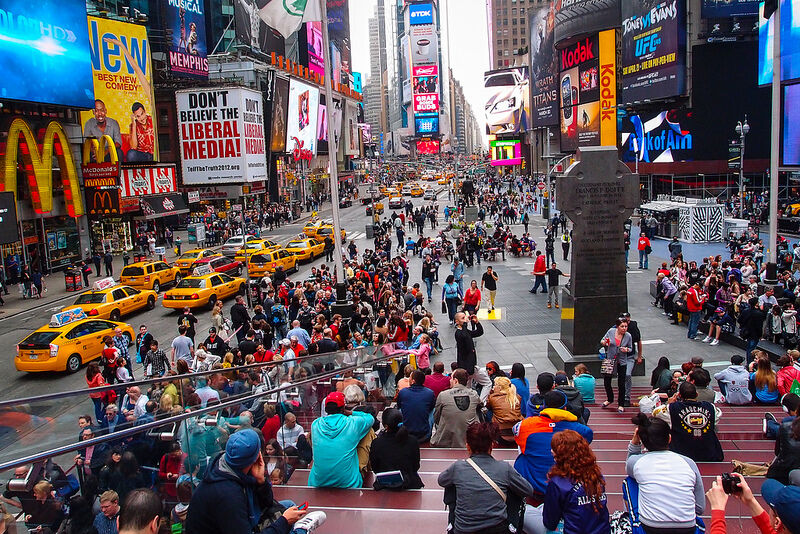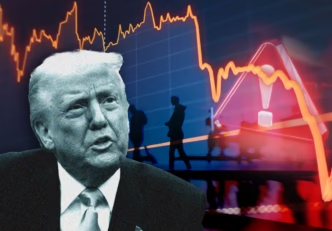The United States has long been one of the world’s leading tourist destinations, attracting millions of international visitors every year. From iconic cities like New York, San Francisco, and Chicago, to natural wonders such as Yosemite, the U.S. has been a symbol of diverse travel experiences. In 2023, the country welcomed 66.5 million visitors, with expectations that 2024 would see even higher numbers. However, recent political and diplomatic shifts are starting to take a toll on the U.S. tourism sector, suggesting a potential decline in 2025.
Tourism Growth in the U.S. Faces New Challenges
The U.S. economy has traditionally benefited from the influx of international tourists, bolstered by its global business influence and cultural prominence. But the 2024 reelection of Donald Trump has shifted the geopolitical landscape, and global attitudes towards the U.S. are starting to change. A new report from Tourism Economics suggests that inbound travel to the U.S. is now expected to drop by 5.5% this year, a stark contrast to earlier predictions of nearly 9% growth. This decline could result in a significant loss of $18 billion in tourism spending by 2025, affecting the broader economy.
The Impact of Tariffs and Changing Diplomatic Relations
One key factor contributing to the tourism downturn is the escalation of tariff policies. After Trump imposed 25% tariffs on Canadian goods, there was an immediate drop in cross-border traffic. Canada, being the U.S.’s largest source of international tourists, has seen a decline in visitors, with Air Canada cutting flights to U.S. destinations like Las Vegas due to reduced demand. A recent survey revealed that 36% of Canadians who had planned trips to the U.S. have already canceled, and bookings on routes between Canada and the U.S. are down by over 70% compared to the previous year. The U.S. Travel Association warned that even a 10% decrease in Canadian visits could result in a $2.1 billion loss in spending and endanger hundreds of thousands of hospitality jobs.
Political Climate and Its Effect on Travel Choices
The political climate under the Trump administration has also had a chilling effect on tourism. Travelers from around the world have expressed concerns about the U.S. becoming an increasingly hostile environment for foreigners, especially with heightened anti-immigrant rhetoric and policies targeting the LGBTQ+ community. A recent survey by YouGov highlighted that Western Europeans’ perceptions of the U.S. have soured since Trump’s reelection. More than half of people in countries like Germany, the UK, and Denmark now view the U.S. unfavorably, signaling a shift away from the U.S. as a preferred travel destination.
Border Issues and Stricter Enforcement
Compounding the problem, several high-profile incidents at U.S. borders have raised concerns about the treatment of foreign visitors. Tourists have been detained for extended periods over visa issues, and recent border enforcement crackdowns have added to the unease. Mexico, the second-largest source of international visitors to the U.S., has already experienced a 6% decrease in air travel to the U.S. in early 2025. The fear of long delays and potential detentions has deterred many potential travelers, and government travel advisories from countries like the UK and Germany are now warning visitors of the risks involved.
The Rise of Alternative Destinations
As more tourists cancel their trips to the U.S., other destinations are benefiting from the shift in travel patterns. Bermuda has seen a surge in interest from Canadian travelers, with hotels forecasting a 20% increase in revenue from Canadian visitors. In Europe, rental properties have experienced a 32% rise in bookings from Canada, as travelers look to alternative locations for vacations and business trips. Even global events like the 2026 FIFA World Cup, co-hosted by the U.S., Canada, and Mexico, are under threat from visa delays and the tightening of entry rules.
Long-Term Effects on the U.S. Tourism Sector
The ripple effects of political decisions and tightening border policies could have lasting consequences for the U.S. tourism industry. With rising visa delays, stricter border enforcement, and an increasingly negative perception of the U.S., many potential visitors may look elsewhere for travel experiences. The impact on the country’s tourism revenue and broader economy may be difficult to reverse, especially as travelers choose destinations with more welcoming climates and fewer bureaucratic obstacles.
The U.S. may be at a crossroads. While it remains a major global player, its tourism sector is facing a period of uncertainty that could reshape its place on the global travel map.
















